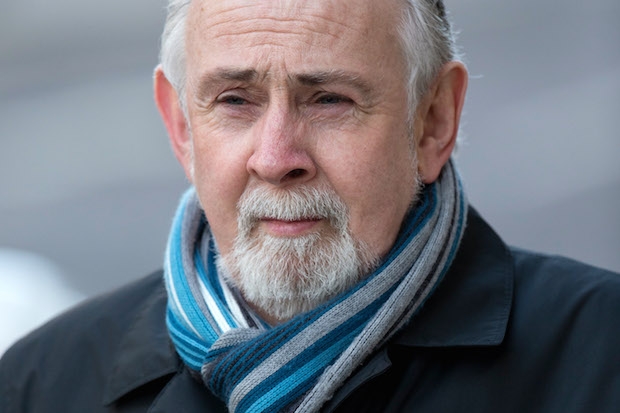The Hallett Review was published yesterday. This is the review ordered by the Prime Minister in February after the collapse of the trial of John Downey. Readers will remember that Downey was about to face trial over the 1982 Hyde Park bombing – in which four British soldiers were murdered – when his lawyers produced a letter from the Police Service of Northern Ireland saying that Downey was not being sought for any offences. This opened up the remarkable discovery that unbeknown to most people involved in the political process in Northern Ireland: that such ‘amnesty letters’ had been sent to almost 200 ‘on-the-runs’ (people being sought for terrorism offences who had not yet faced trial). The people given these letters of assurance were all Republicans.
The Hallett review slightly clears up certain things. For instance it says that the letters themselves, while not a secret, were part of a ‘below-the-radar’ deal between the Labour government and Sinn Fein. It says that the arrangement was ‘not unlawful’ but acknowledges it was flawed. But it still leaves one vast and gaping problem. Why can John Downey not now be tried for the murder of four British soldiers?
I have been asking around the various departments and remain surprised by the decision. The Downey trial was stayed because there was deemed to be an abuse of process.
The Judge (Mr Justice Sweeney) stayed the prosecution as a result of the production of the letter and while aware that the letter contained an error (the PSNI said that Downey would not be pursued for offences carried out in Northern Ireland or on the mainland – this latter point being incorrect). Now some of the business of the letters has come to light, and the specific mistake made by the PSNI has been reconfirmed. But the question of Downey’s innocence or guilt surely remains? The then Attorney General Dominic Grieve both approved the decision to prosecute Downey and approved the decision not to appeal the judgement of Mr Justice Sweeney. There remains something baffling here.
I understand that there are two options available to change this. The first would have been to have appealed the decision within 28 days – a time which has obviously passed. The second is to have the stay lifted. The threshold for this was deemed by the Attorney General to be too high, the appeal only being possible to overturn were it to be decided that Mr Justice Sweeney’s decision was one that ‘no judge could reasonably come to’. Earlier this month (before the Northern Ireland Affairs Committee) Dominic Grieve reiterated his view that he does not believe this would be possible.
There will be more to come out here. Not least on the deeply squalid – even if not unlawful – deal done by the last Labour government as regards ‘on-the-runs’. But the fact remains that John Downey was due to face trial for alleged involvement in a savage act of violence. It appears to be official opinion – Dame Heather Hallett does not disagree with it – that because of a mistaken detail in a ‘below-the-radar’ letter issued by the PSNI John Downey cannot now face trial. I must say I fail to see how this can be so, and fail even more to see how this could possibly be acceptable in the court of public opinion. Many of us continue to believe that the cold-blooded murder of our soldiers is wrong. It was wrong when it happened on the streets of London in 1982 and it was wrong when it happened in 2013. The culpability of any suspectedperpetrators should be judged by proper legal process and time should not alter this. Nor should a squalid political deal or a relatively minor bureaucratic cock-up be used as a reason for justice not to be pursued.







Comments